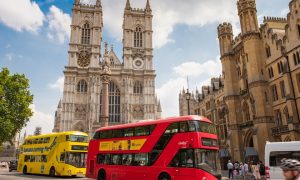The UK is the world's most popularimmigrantsOne of the destinations, but the complexity of policies and procedures often overwhelms applicants. This article summarizes theUK immigrationWe provide detailed answers to frequently asked questions and help you take the first step to immigrating to the UK more smoothly.
I. Visa-related issues
1. What are the main types of immigrant visas available in the UK?
UK Immigrant VisaThe main categories include the following:
- Skilled Worker Visa (SWV): For applicants with UK employer sponsorship.
- Student Visa: For applicants planning to pursue higher education in the UK.
- investment immigrationVisa (Investor Visa): A minimum investment of £2 million is required.
- Startup Visa (Innovator Visa): For entrepreneurs with innovative business plans.
- Family Visa: For reunification with relatives in the UK.
2. How can I tell if I am eligible to immigrate?
Each type of visa has specific requirements, which usually include the following:
- (a person's) age: Some visas, such as the Youth Mobility Scheme, have age restrictions.
- verbal ability: IELTS or equivalent English test scores are usually required.
- financial proof: Demonstrate sufficient financial means to support yourself or your family in the UK.
- Guarantee or investment requirements: If an employer's sponsorship is required for a work visa.investment immigrationInvestment amount needs to be met.
3. How long is the visa application cycle?
Visa processing times vary by type:
- Work visas and student visas generally take 3 to 8 weeks.
- investment immigrationVisas can take longer, depending on the background check.
It is advisable to start the application 3 months in advance to avoid delays.
II. Life-related issues
4. What benefits are available to immigrants?
The following benefits are available after obtaining permanent residency (ILR) or British citizenship:
- Free health care (NHS)
- Children's education: Public schools are free.
- social welfare:: Includes unemployment benefits, housing allowances and childcare allowances, among others.
Until then, some visa holders may be required to pay for their own medical care or pay a medical surcharge (IHS).
5. Is the cost of living in the UK high?
The cost of living varies by region:
- London, capital of United Kingdom: The cost of living for a single person is around £1,500 to £2,500 per month.
- Non-London: Costs around £1,000 to £1,800 per month.
- Main expenses: Includes rent (the largest percentage), food, transportation and utilities.
6. What are the dos and don'ts of renting?
Renting an apartment in the UK requires attention:
- Lease length: Usually 6 to 12 months, renewals are negotiated with the landlord.
- Deposit Requirements: Usually one to three months' rent, to be deposited in a government-approved deposit protection agency.
- housing situation: Be sure to inspect the condition of the home before signing and take photos to document the current situation.
III. Issues related to education and employment
7. Can children be enrolled in British schools when they emigrate?
Yes, children can attend state schools free of charge depending on their residential address. Private schools are subject to tuition fees of between Pound10,000 and Pound20,000 per year.

8. Is it difficult to find a job after migration?
Here are some things to keep in mind when looking for a job in the UK:
- Provide skills or qualifications that meet the requirements of UK employers.
- Look for opportunities through career sites such as Indeed, LinkedIn.
- Non-EU migrants need a valid visa to work legally.
9. What are the high-demand occupations in the United Kingdom?
The list of high demand occupations in the UK includes:
- Medical personnel: doctors, nurses and midwives.
- Information technology: software development, data analysis and cybersecurity.
- Engineering: civil, mechanical and electrical engineers.
- Education: math and physics teacher.
IV. Immigration application skills
10. What are the common misconceptions about immigration to the UK?
- Misunderstanding Policy Updates: Neglecting the mostrecent immigrantsPolicy changes may result in failed applications.
- Inadequate preparation of language scores: Some applicants did not prepare for the English test in advance.
- Inadequate financial preparedness: Failure to provide bank certificates of deposit that meet the requirements.
- Ignoring visa validity: Overstaying may lead to serious consequences.
11. Do you need the assistance of a lawyer during the application process?
It's not mandatory, but hiring an immigration attorney can be:

- Ensure that documents are prepared correctly.
- Reduce the risk of visa denial.
- Provide professional advice, especially in complex cases.
V. Migration follow-up issues
12. How do I convert from a visa holder to permanent residence?
Permanent residence (ILR) is usually subject to the following conditions:
- Hold a valid visa for 5 years (some visas require less time).
- No serious criminal record.
- Pass the Life in the UK test and language test.
13. What are the requirements for applying for British nationality?
The main requirements for applying for British citizenship include:
- Permanent residency has been obtained.
- Have lived in the UK for 1 year.
- Pass a background check and language test.
14. Is it possible to return home after emigrating from the UK?
Yes, but you need to ensure that your visa or right of abode is valid. If you leave the UK for an extended period of time (more than 2 years), you may lose your permanent right of abode and need to reapply for entry clearance.
VI. Conclusion
Immigration to the UK is a complex but worthwhile investment, and understanding the common problems and solutions can help you go through the process with fewer hiccups. Whether you are applying for a visa, settling into life, or planning for the future, doing your homework in advance is the key to success. We hope thisUK Immigration GuideProvide you with clear guidance on your immigration journey!






